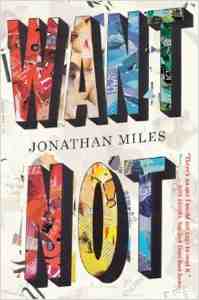
India made Micah cry….It wasn’t the makeshift blue shanties and lean-tos, or the women thrashing clothes on rocks, the men squatting to defecate in the shade of Peepal trees, or the naked, cinnamon-colored children cooling themselves in puddles–all this was too familiar, even nostalgically comforting, to faze her. What wrenched her, instead, was the unnatural landscape of the poverty: the scale, the density, all the degraded details. The coolant-green, battery-acid-yellow swirls in the puddle those children were cooling in. The mustardy burning-trash haze that strangled the breeze those women were sucking into their lungs as they paused between thrashings. And the hunger: the everywhere night-and-day hunger that seemed to her so impossible – how could so many be so hungry and contaminated, yet the earth still be spinning, the newspapers publishing, the factories factory-ing, the lovers loving, the preachers preaching? How could God justify this lopsidedness, with endless Hamburger Helper granted to one side of the world and what looked like nothing to the other?—and yet so insurmountable, so unrelievable at the same time? It can’t be like this but it is; it must change but it can’t.
– Want Not by Jonathan Miles, p.182
A more serendipitous find than Jonathan Miles’ new novel Want Not I have not enjoyed in recent years.
Want Not – I Want
Want Not lay forlorn in the New Arrivals section of my local library.
The title and jacket lack the gaudy design to get the book to easily jump from the shelf into readers’ hands.
And Jonathan Miles, the author, is still unknown quantity to many.
Let alone reading him in the past, I had not even read about Miles.
On a lark I picked up Want Not little realizing the huge favor I was doing myself.
Clearly the product of years of labor, Want Not is Miles’ second novel (Dear American Airlines was his first).
Want & Waste
For much of human history, wants of average people were limited, largely I suppose because there were not many things around to want.
With the industrial revolution, rapid pace of technological developments and growing prosperity has come an endless supply of goods to fuel our wants.
The novel is loosely about the two Ws that dominate our lives in the current age – Want and Waste (including the horror of nuclear waste that one of the characters in the book grapples with).
The modern era is distinguished from earlier ages by Insatiable Want and Incomprehensible Waste.
One inevitably follows the other.
There would not be a vast stinking wasteland of trash around every city nor huge trash bags outside every home on trash pickup days were not our wants limitless.
Want and Waste bother few of us.
But they bother Jonathan Miles a lot since Want and Waste are the broad framework in which he sets his main characters and their stories.
The urban scavengers Micah and her boyfriend Talmadge, the linguist Elwin Cross and his Alzheimer’s ridden father, the troubled young girl Alexis, her debt collector step-father Dave, shopaholic mom Sara and aunt Liz, Talmadge’s recidivist friend Matty, and Elwin’s man-boy neighbor Christopher are a motley but interesting lot.
At close quarters, I suppose every life, including that of average Joes who make up 99% of the world, is interesting in its own way.
And Miles’ fine writing makes each of his main ordinary characters (as well as the several lesser ordinary characters) jump to life and leap out of the pages.
Broadly, there are three stories in the book and not that big a connection between them except to some degree toward the end.
Miles’ writing is excellent all through and, to my immense delight, often bitingly sarcastic.
At the end of the book, I felt civilization, if that’s we have now, is terribly overrated.
Indian Connection
Of course, there’s an Indian thread in the book.
Don’t all great works in the world have an Indian connection? 😉
Micah makes a trip to India, visiting Mumbai, Varanasi, Haridwar, Chennai and Mangalore, makes love in a poppy field outside Bundi (Rajasthan) with her girlfriend Leah, chews paan, turns vegetarian and while riding the train from Mangalore to Mumbai makes the depressing discovery that the sea of plastic trash bags by the tracks did not save the Indian elephant from their miserable fate.
Plastic had triumphed, and not in a pretty way!
I greatly enjoyed Want Not.
This is one of the rare books I Want to read a second time.
I hope Jonathan Miles will forgive me for wanting more of his fine novel! 😉
Want Not is available at most U.S. libraries.

Am currently reading this book.
SI definitely has good tastes in books.
And no, I am not muska pottu fying
SearchIndia.com Responds:
Want Not is one of the finest books I’ve read in recent years.
The book is also a damning indictment on the current times with our insatiable wants and ceaseless wastes.
I finished it.
Really wonderful book. Thanks for suggesting it.
After reading this, I have a better appreciation of Mumbai Dharavi’s ecosystem. That’s a recyclers paradise and provides employment to many. Yes, life may not be ideal there, but if you are able, panhandling is not an option that is going to fly inside Dharavi.
Do suggest the next good book.
SearchIndia.com Responds:
1. Dharavi ecosystem is different.
Literally feral.
Extremely unlike downtown Manhattan, which is in part the setting of the two squatters in Wanted.
2. What did you think of the India bit in Wanted? Did the author really go there or is it based on secondary data?
I’m somewhat skeptical he went there because the descriptions particularly of cities (including Chennai) are so sparse. India would surely have had a greater visceral impact on a White guy! 😉
3. You Write: Do suggest the next good book.
a) On the Annawadi slum in Mumbai, not unlike Dharavi.
Behind the Beautiful Forevers: Life, Death, and Hope in a Mumbai Undercity by Katherine Boo
b) On the Jesus nonsense
Zealot: The Life and Times of Jesus of Nazareth
by
Reza Aslan